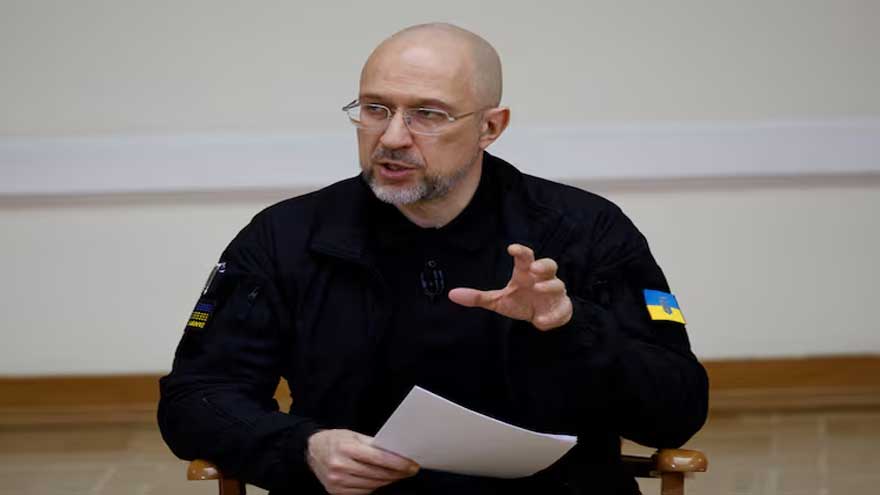DM Monitoring
KYIV: The Ukrainian parliament voted to dismiss Prime Minister Denys Shmyhal on Wednesday, lawmakers said, part of a government overhaul aimed at strengthening wartime economic and military management.
The move effectively dissolves the cabinet, and lawmakers are expected to approve new members on Thursday. First Deputy Prime Minister Yulia Svyrydenko, tapped by President Volodymyr Zelenskiy this week, is the only candidate to chair the new government.
President Donald Trump has finally found a way to like arming Ukraine: ask European allies to donate their weapons, and sell them American replacements.
Now comes the hard part — agreeing on who will actually give up their prized systems, including the Patriot missile batteries that Kyiv has been desperately seeking.
“We’re going to make top-of-the-line weapons, and they’ll be sent to NATO,” Trump said in the Oval Office on Monday.
Some Patriot missile defense systems should arrive in Ukraine “within days,” added Trump, who faces resistance from some high-profile figures in the MAGA movement who oppose US support for Ukraine.
The costly Patriot systems – in high demand among US allies – have proven effective at destroying Russian ballistic missiles aimed at Ukraine’s cities.
The US has also signaled willingness under the proposed arrangement with European allies to send additional offensive weapons, said one source familiar with the matter, though Trump has said that Ukraine should refrain from attacking Moscow.
The plan, which Trump and NATO Secretary General Mark Rutte hatched in recent days, according to two sources familiar with the discussions, has been received positively by Ukraine and its allies. Leaders in Kyiv and elsewhere have celebrated a major tonal shift from Trump, who had until recent weeks spoken glowingly of Russian President Vladimir Putin. But since the announcement, it has become clear Trump presented a framework – not a fleshed-out plan. How material any support ends up being for Ukraine will depend on coming negotiations about who provides which equipment, according to 10 officials in the US and Europe.
“As always with these things, the devil is in the details,” said one northern European ambassador in Washington. The central question is who would donate the Patriot batteries, and when.
During his Oval Office meeting with Trump on Monday, Rutte mentioned six NATO countries – Finland, Denmark, Sweden, Norway, the Netherlands and Canada – that were willing to participate in the weapons-purchasing scheme.
High-ranking sources at two of those countries’ embassies in the US told Reuters they personally learned of the plan as it was announced. Even close US allies appeared to learn of the proposal in real time.
“It is my clear sense that nobody has been briefed about the exact details in advance, and I also suspect that internally in the administration they are only now beginning to sort out what it means in practice,” said a separate European ambassador.
Kurt Volker, a former US ambassador to NATO, said Trump found a way to balance support for Ukraine with the political realities of the Republican Party. Having the European allies underwrite US arms supplies is “very consistent with what he (Trump) said during the campaign,” he said.
Throughout the campaign, Trump said he would push European countries to spend more on defense, to great applause from MAGA crowds. “You gotta pay,” he said. “If they’re not going to pay, we’re not going to protect, ok?”
Volker said Ukraine could ultimately receive 12 to 13 Patriot batteries but it could take a year for them all to be delivered.
Asked for comment, a NATO official said the defense alliance would coordinate weapons deliveries through a mechanism known as the NATO Security Assistance and Training for Ukraine, a NATO mission located in Germany that is responsible for coordinating Western military aid for Kyiv.
“Several European countries have already committed to support this initiative including Germany, Norway, Denmark, the Netherlands, Sweden, the United Kingdom, Canada and Finland,” the official said. “Details are still under discussion.”
In response to a request for comment, the Pentagon referred Reuters to Trump’s Monday remarks announcing his agreement with Rutte.
The White House did not respond to a request for comment, nor did the Ukrainian or Russian embassies in Washington.




